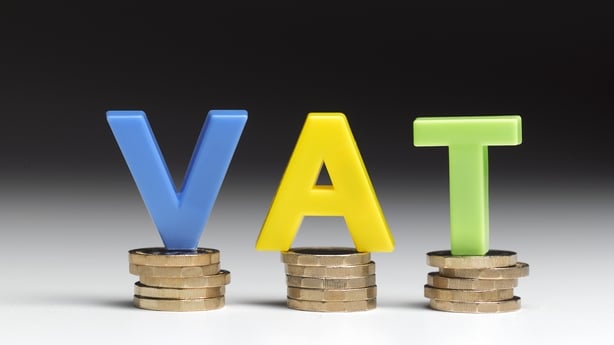The new draft programme for government includes plans to cut the VAT rate to 9% for food services, entertainment and hairdressing in the next budget.
The move has been widely welcomed by food and hospitality businesses, but will customers benefit from a similar reduction in prices if the rate is cut?
To put it simply, will you pay less for your burger and chips?
VAT is a tax charged on the sale of goods or services and is usually included in the price.
The tax, in all cases, is ultimately payable by you, the final consumer.
So when you pay for your burger and chips, you are currently also paying 13.5% in VAT, which is collected by the fast food restaurant and included in their VAT return to Revenue.
It stands to reason that if VAT is cut by 4.5%, that the price of your takeaway should also reduce by 4.5%.
Not when the chips are down.
Supermacs boss Pat McDonagh called for the reduced 9% VAT rate to be introduced immediately, rather than wait until the next budget in October.
When asked if a Mighty Mac would cost less after the rate was cut, Mr McDonagh said, "We have no details in relation to the proposed VAT rate reduction so it would be inappropriate to speculate accordingly.
"Pricing is dictated by the prevailing conditions and our aim is to always keep our prices as low as possible for our customers," he said.
Restaurateurs and food businesses argue that they have had a lot on their plates in recent times. Rising food and government-imposed labour costs put their margins under pressure.
Last year, the sector mounted a campaign in the lead up to Budget 2025 to petition politicians to reduce the rate to 9%, but it was unsuccessful.
Pat Crotty is chief executive of the Vintners Federation of Ireland and founder of Paris Texas bar and restaurant in Kilkenny.
"We're happy that government has recognised that there is a problem, and they have recognised that they need to be part of the solution. This is a very important part of the solution but it's not the entire solution," Mr Crotty said.

Cutting the VAT rate for the entire hospitality sector would cost almost €800 million per year. If the rate is cut for the food and catering sector, it will cost €550m a year.
Barra Roantree, assistant professor in Economics at Trinity College Dublin, said the decision to cut the rate, whether it happens immediately or next October, was "disappointing", describing it as a "very expensive measure".
He said, it serves to "erode our existing tax base, making it even more reliant on corporation tax which we are being told by the government we need to be very careful about".
"It is also a very poor use of funds. It's not an effective way to support companies," he said.
The assistant professor argues that it supports the companies that have the highest turnover, such as fast food chains.
"The main beneficiaries of this cut are going to be those with high turnover, and the places that are doing large volumes of expensive food," he told RTÉ's Today with Claire Byrne.
"One of the areas that will see the biggest gain from this are the pubs in Templebar who are selling very expensive pints and lots of them.".
Mr Crotty countered: "Most of the cost that government has brought to bear on small business is employment related costs, and that doesn't only affect the food operators.
"We have an awful lot of pubs who are members, that only sell drink (VAT 23%), and they are labour intensive and they have been hit by all the govenment-imposed changes in labour law, and more to come. There's nothing in this for them."
Paul Davis is the CEO and founder of Davis Events Agency. He said the VAT reduction is welcome, but also called for its immediate implementation.
"We're looking forward to seeing the details of this plan, in particular we would like to see it include ticketed events, conferences and tourism activities, which would be of great benefit to our customers," he said.
"Our main message would be that tourism, events and hospitality could really benefit from a cut in the VAT rate to help get through the 2025 season."
Mr Davis said price reduction for customers would follow a rate reduction in the sector.
"If the VAT rate comes down then it would be expected that prices across the board would come down in hospitality."
The government has provided grants and rate rebates for businesses, particularly SMEs, in the past year, but the Vintners Federation CEO said a permanent VAT rate reduction to 9% would give certainty to businesses.
"You cannot go to your bank manager and say I have a plan to grow this business, or even sustain it and keep it alive, on the basis that I might get a grant.
"If my VAT cost is a certain amount and I know that I have a net margin at that, on the basis that my market can sustain, then I can go to the bank manager and say I know I can sustain it next year as well, and will you support me to grow my business. You can't do that with grants and rebates," Mr Crotty said.







